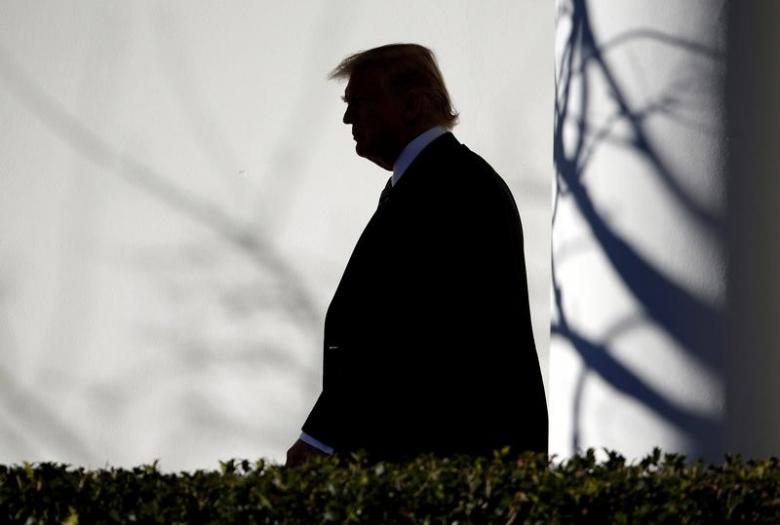Joshua Roberts/Reuters
By
Wally Swist
Western Civilization and Wild Horses
What affects me the most
is that despite all of our electrical gadgets
we seem to be able to communicate less
with one another than ever.
The archetypes inform our psychologies.
Essentially this world is ruled by second
and third chakra energies: sex
and power. Most of us never
get to use fourth chakra energy, which is
the healing and spiritually
reaffirming power of the heart,
because we don’t practice it. We may talk
kindness and generosity
but most of us just give lip service
to those qualities. Carl Jung said that he
thought he might have
achieved the fourth chakra, and if that
is an indication of our success in accessing
the sacred energy of the fourth
chakra, most of us can’t even imagine
what that might be. The world is a dark place.
Bullying has been the active
method of intimidation. Although,
I can’t appraise the American voter for ever
being bright. Dimwitted
may be a better term. We should
remember who slaughtered the Plains Indians
with such candor and elemental
savagery of their own. Those
same regretful qualities are emblematic
of the fatuous posturing
and preposterous pronouncements
of Donald Trump, American Nazi. He is
one reason why it has
been possible for fascism
to become popular in America. Not that
the two are connected
directly, but, in a similar sickness of
spirit, the Advisory Board of the Bureau
of Land Management (BLM)
voted to euthanize all 45,000 burros
and wild horses present now in holding
pens to make room for mega
meat farms, and there is
nothing more annihilating than the mass
elimination of the primal
soul of America than
this, the nobility of its equine population
running free across
the western plains
in full abandon, relinquishing themselves
and the broad sweep
of their essence to no one, as they
gallop towards the endless prairie horizon.
Hatred
It is represented in drawings and paintings
as dark because its essence is odious,
such an ominous rankling. It repels everything
and absorbs its own suffering. Its weight
overwhelms those who practice its black arts
but those who indulge themselves in such
aberrant devotions often find a visceral thrill
in sticking a pin through the heart
of the kewpie doll designed as the victim
of their rage. If the transgressions are so dire,
there is even a joy in hurling curse after curse
upon those who trespass against us not only in
life, but also far past the grave, in one life after
another. The sheer force of such an epithet
is shrill but beyond our normal range of hearing.
The Harpies’ voices raise themselves in a choir.
The Black Paintings of Francisco Goya come
to life. His Witches’ Sabbath or Aquelarre
animated with their subjects filling the sky
on brooms. Like Goya, we paint our canvases
with the palette of darkness from our accrued
spleen from those who have injured us,
and we execute the viscera, twisting and turning
in on itself like a basin of silverfish
or a tub of snakes, onto the plaster
of our innermost rooms, and when these are
accomplished, they are never written about,
neither are they spoken of, or referenced,
or even exhibited—anywhere.
However, when our intentions are discovered,
like a wry smile discerned
in the set of the jaw bones of the skull of
our corpse, those who discover them can see
that the paintings can be salvaged, despite
the transference of their crumbling
onto canvas, the presentation of wrath
perpetuating itself, well past
the length of our own lives, preserved beyond
what lies desiccated after our deaths.
Stinging Nettles
The border of the opening
out of the grove of staghorn sumac
and into the field of milkweed
made me cautious at once,
an intuition precipitating a memory
of what this plant’s trichomes,
or the stinging hairs, on its leaves
and stems do, acting as a hypodermic,
injecting histamine into animals
and humans who brush them
as they walk by. How harmless
these woody stems and serrated
leaves appear upon approach, until
looking more closely one can
clearly see their eponymous nettles
as they bristle the edge of the trail,
not unlike the whole copse of them
that we saw that early summer dusk
after getting quite lost on our hike
through Ice Glen in Stockbridge,
where we saw a flock of perching
cedar waxwings passing
honeysuckle berries to each other.
Our having become so wayward
that with thunderheads bulking up
above us in the sky, we decided to
swim across a narrow course
of the Housatonic River, before we
saw a light in a farmhouse, which
lead to Route 7. However, our last
mythical challenge was the thick
patch of nettles which separated us
and what was still a way to walk
back to the car, as I beat a path
through the vegetation, laying
whole swaths of it aside with my
walking stick so you could pass
behind me untouched by the prickly
hairs of the plant, which caused
paresthesia in both my thighs and
yours, since we were wearing shorts,
as how much of the nettles I was
able to lay back there were stray
stalks that bounced right back up,
nicking our skin. Our legs tingled
as if they had been hot wired with
an animation of pins and needles,
mine more than yours, since I bore
the brunt of the forage through
the thicket of it all, still hearing
the shush of my sweeping aside such
a tangle of stinging green, only for
strands of it to twist free, to spring back,
scraping themselves across and over
our legs, providing us with the burn
of discomfort, invisibly searing
that within us, as an indelible memory.



No Comments Yet!
You can be first to comment this post!